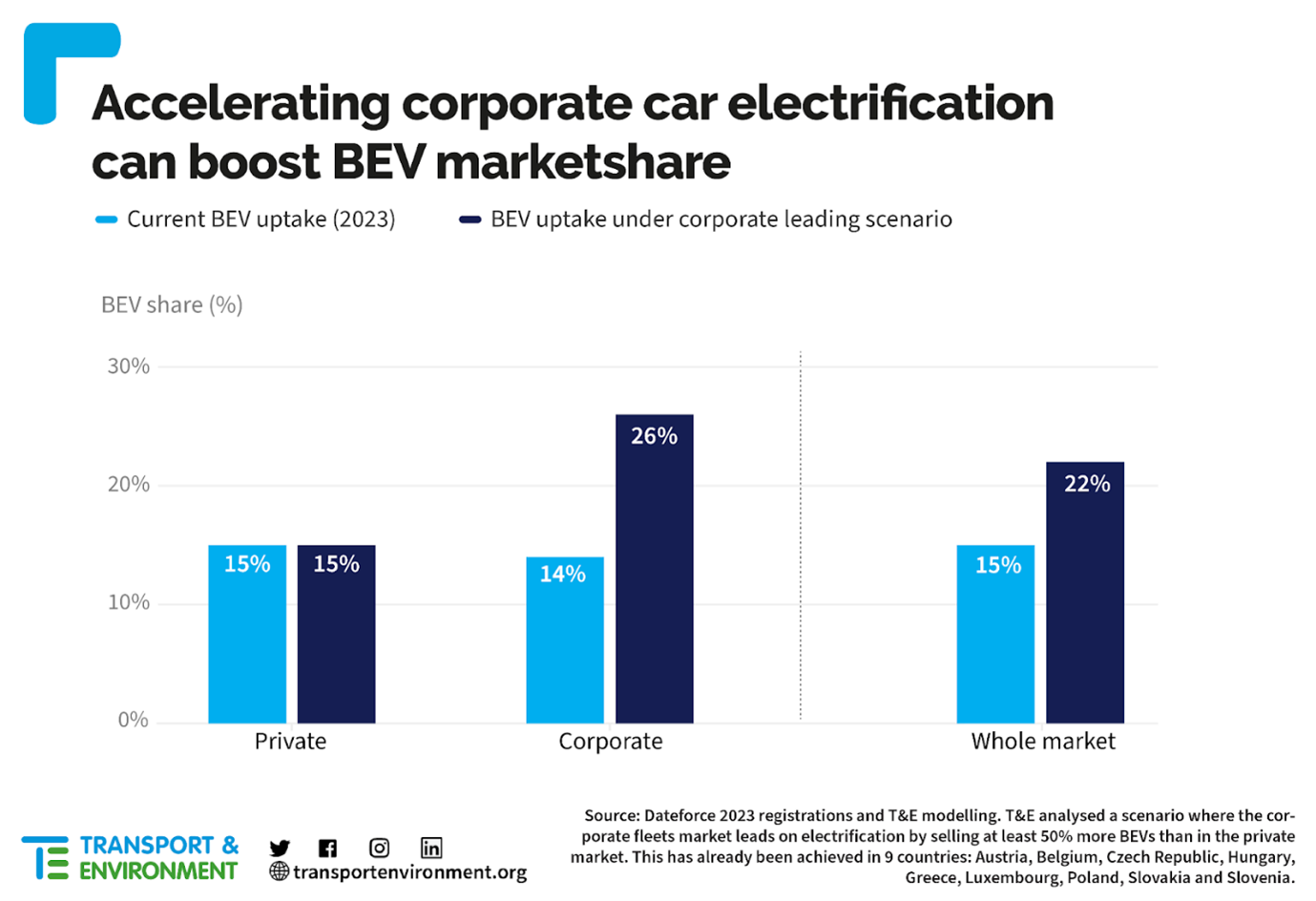The EU is being urged to mandate a target for fleets to be 100% electric by 2030, with the penetration of battery electric vehicles (BEVs) in the company car sector lagging behind the UK.
Just 14% of company cars registered on the continent were fully electric in 2023, compared to more than a third (34%) of true fleet sales in the UK.
The proportion of BEV registrations in the company car sector in the EU are also lagging behind private sales, with a 15% penetration rate achieved on the continent in 2023. In the UK, BEVs accounted for just 8.8% of private registrations last year.
Overall, BEV registrations in the EU accounted for 14.6% of the market in 2023, while in the UK it was 16.5%.
The EU Commission has opened a public consultation on greening company cars, which closes in April.

Taxation plays an important role in incentivising electric car uptake, but in countries such as Germany, carmakers have opposed the reform of company car taxes that would increase the tax burden on petrol and diesel cars, says Transport and Environment (T&E).
The green lobby group wants the EU to set targets for fleets to be 100% electric by 2030 at the very latest.
Anna Krajinska, vehicle emissions manager at T&E, said: “Corporate cars are the perfect candidate for accelerated electrification.
“They are heavily subsidised through tax cuts, and companies have the financial muscle to invest in EVs. That’s why the EU must come forward with a law that covers a large portion of the company car market, by regulating leasing giants and companies with big car fleets.”
With BEV uptake doing so well with fleets in the UK, thanks to fleet-friendly low benefit-in-kind (BIK) tax rates, calls to incentivise the private market are instead being made here.
The Society of Motor Manufacturers and Traders (SMMT) says that the UK is now the only major market to combine a 2035 end of sale date with a mandated zero emission vehicle market share, but without any significant consumer incentives.
Ahead of next month’s Budget, industry is calling for Government to support consumers by temporarily halving VAT on new BEV purchases.
Such a step would cost the Treasury an average of just £1,125 per car, which is less than the cost of the previous plug-in car grant, says the SMMT.
It claims that such a move would put more than a quarter of a million electric – rather than petrol or diesel – cars on the road by the end of 2026, on top of those already expected.





















Login to comment
Comments
No comments have been made yet.